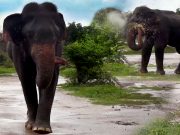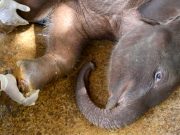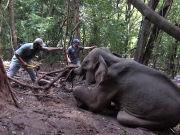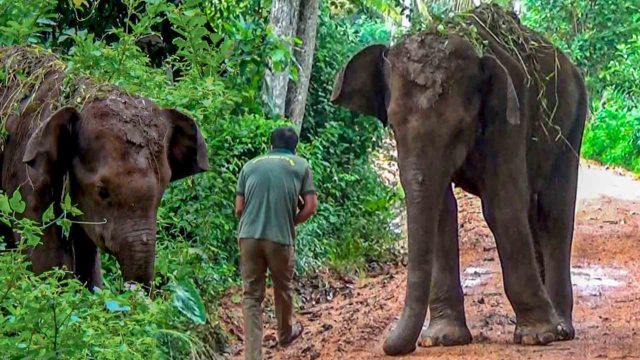Jaw bombs, jaw exploders, or Hakka patas are improvised explosives concealed in fodder bait and explode when bitten. They are targeted at wildlife, typically wild boars for bushmeat, which they kill as soon as they explode. On the other hand, elephants are much bigger in size and this Hakka patas don’t kill them right away. Instead, they inflict extreme mouth injuries and an overlong death from infection and starvation.
The first case of Sri Lankan elephants killed by Hakka patas was reported in 2008. However, a decade later, these explosives became the number one killer of these gentle giants. Sri Lanka has constantly recorded over 200 elephant deaths each year for the past four years. This is one of the highest death rates of any country having a wild elephant population.
The major reason Hakka patas are common is that they are easy to make. Gunpowder is mixed with metal scraps and gravel making its shrapnel. This mixture is then tightly packed together, balled up with fodder, and left in agricultural lands or wherever the humans don’t want animals to enter.
Hakka patas is usually inserted in a pumpkin or other delicacies of wild animals to make them chew it. The result is a highly injured mouth cavity leading to death that takes up to two weeks. This is because the animal cannot chew and swallow food and ultimately becomes emaciated.
Since a huge elephant population has been affected by these explosives, the Wildlife Department of Sri Lanka has taken a step toward the safety of this endangered species. They have a team of highly devoted professionals who know how to save elephants from such traps. It is a team of trained professionals highly committed to saving the elephant population from all kinds of troubles including Hakka patas traps.
What they do is arrive timely at the location where elephants are reported in trouble or pain, rescue them, and provide appropriate medications and treatments. The elephant population in Sri Lanka that had been declining exponentially is expected to rise again or at least stay constant for the future years with this care and protection by the Wildlife Department of Sri Lanka.




























